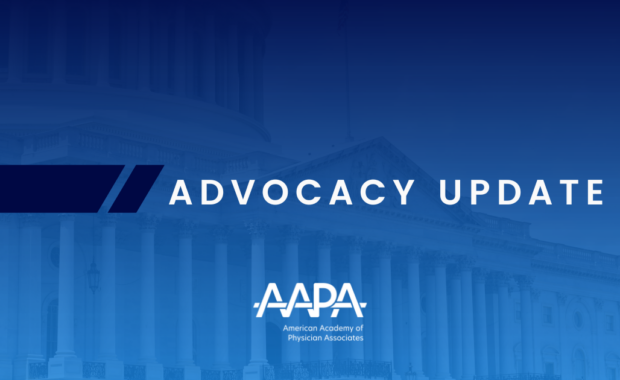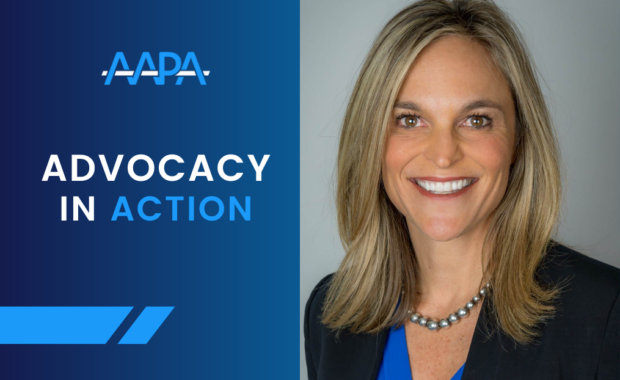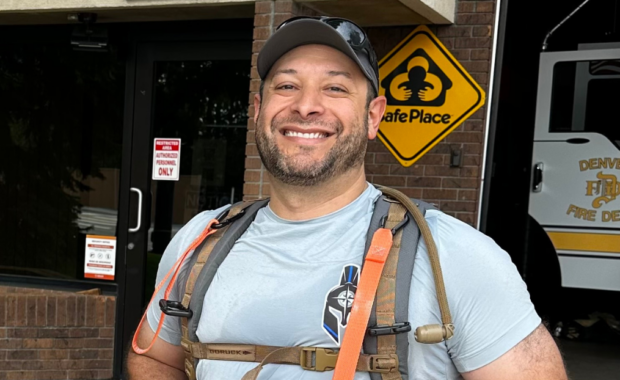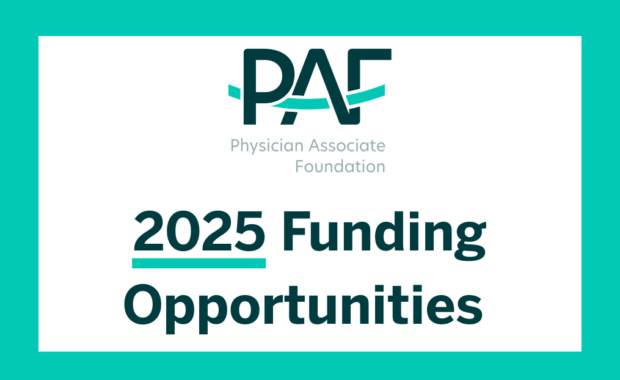From Language Barriers to Medication Access Challenges, Carlos Amaya Bridges Gaps in Mental Health Services
Amaya is one of the 2.7% of PAs practicing psychiatry in the U.S., and precepts future PAs on the importance of mental health care
June 4, 2025
By Jennifer Walker
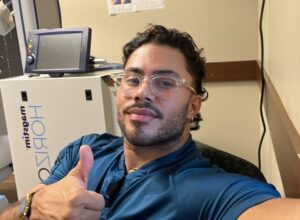
Last year, physician associate Carlos Amaya saw an eight-year-old non-verbal patient and his mother at Avant Interventional Psychiatry in Marietta, Georgia. The mother was eager to learn more about her son’s condition, but she only spoke Portuguese. Amaya spoke Spanish, and he had learned a few words and phrases in Portuguese from his Brazilian friends. He thought he could communicate with the mother using a mix of the two languages, which is known as Portunhol. But, he said, “A lot was lost in translation.” Amaya had to pull up a translator app on his phone to help. The visit, which should have lasted for 30 minutes, took an hour.
It was clear how much the patient’s mother wanted to understand what was happening with her child, and Amaya knew he could help by learning to communicate in her language. “I told her I would start learning more Portuguese to be able to speak with her,” said Amaya, adding that 10 percent of his patient population speaks Portuguese. “Knowing some of the language makes a huge difference in these patients’ visits because they don’t speak English at all.”
Going the extra mile for patients, as well as PA students, is a theme in Amaya’s psychiatry practice. Along with taking language lessons, he draws on his background in pharmacy to provide vital resources to his patients. He has also precepted close to 100 PA students (from four PA programs) in psychiatry—a specialty in which only 2.7 percent of PAs practice, according to the 2024 AAPA Salary Report.
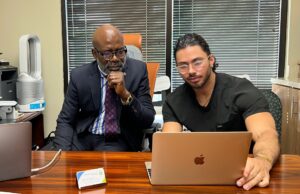
Amaya’s patients and their families appreciate his willingness to do everything he can to help them access high-quality mental health services. When reflecting on his experience with the mother of his eight-year-old patient, Amaya said, “She always expresses her gratitude that my Portuguese is getting better. Now we’re able to have conversations without me using an actual translator.”
The Draw of Psychiatry
When he was young, Amaya thought that building a career in healthcare was the key to success. “In our Latino culture, if you are a healthcare provider and you work in the medical field, you’re going to be somebody,” he said.
Amaya, who first worked at a Walgreens specialty pharmacy for seven years, was drawn to the PA profession because it would allow him to work with patients sooner. He applied to only one school: San Juan Bautista School of Medicine, a private medical school in Puerto Rico. During his psychiatric rotation, Amaya saw several patients with major depressive disorder due to Hurricane Maria, the Category 4 storm that hit the island in 2017. He also provided care for patients with schizophrenia and gained a better understanding of hallucinations, as well as how some of those symptoms can be controlled with medication.
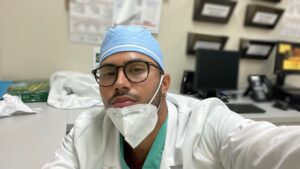
“I was able to see and understand patients who had disorders that we are often surrounded by but unaware that they are happening, and how medications help these people live such a higher quality of life,” Amaya said.
After graduating and returning to the U.S., Amaya joined Avant Interventional Psychiatry in late 2023. At Avant, Amaya’s language skills and pharmacy background are an asset to his patients—and working in a specialty where PAs have limited representation has immense value for his students.
Bridging Gaps in Mental Health Services
Each day at Avant, Amaya sees 22 to 28 patients ages six years old and up. His younger patients often present with ADHD, autism, and oppositional defiant disorders, while his older patients have been diagnosed with bipolar disorder, borderline personality disorder, generalized anxiety disorders, PTSD, schizophrenia, and more. Amaya enjoys seeing this mix of patients rather than focusing on certain disorders or populations.
In psychiatry, Amaya finds that there is always an investigative aspect to making diagnoses and forming treatment plans. “There’s really no test to prove anything,” he said. “You’re often dealing with someone who is telling you they don’t feel well, and you have to explore what that means.”

Amaya’s language abilities are a valuable skill during this exploration. To learn Portuguese, Amaya—who already communicates in Spanish to the 40 to 50 percent of his patients who speak the language—first discovered a lesson on TikTok, then enrolled in a self-paced course. Thus far, he has completed one year of study and hopes to better serve his community as his language skills improve.
“Marietta has a very high population of Brazilians who only speak Portuguese,” he said. “I know the Brazilian patients will know other Brazilians that they could recommend to me if they needed mental health services.”
With his background in pharmacy, Amaya also knows where to access valuable resources for his patients. He has an account with CoverMyMeds, a company that works to solve medication access challenges, which allows him to submit supporting clinical documentation to get medications approved. He also supplies copay cards for those with commercial or private insurance who cannot afford medication, as well as for those who are uninsured or underinsured, and he helps apply for patient assistance with pharmaceutical manufacturers to help them receive free medication for up to one year.
Amaya is also an official preceptor for the Morehouse School of Medicine in Atlanta, Georgia, and the Rosalind Franklin School of Medicine and Science in Chicago, Illinois. He works with dozens of PA students every year during their five-week rotations in psychiatry. He teaches his students how to work like a PA while focusing on what they should consider when treating psychiatric conditions, such as when to add medications or change the dosage of current prescriptions.
Amaya is especially grateful for the opportunity to introduce PA students to the psychiatry field. Three of his former students even plan to join Avant full-time. “For me, working in mental health, to be able to bring exposure to the PA role in psychiatry is the greatest benefit,” he said.
Jennifer Walker is a freelance writer in Baltimore, MD. Contact Jennifer at [email protected].
You Might Also Like
Physician Associates Addressing Youth Mental Health One Day at a Time
2024 Diversity Award Recipient Breaks Down Language Barriers for Spanish-Speaking Patients
Bilingual PA Ledyenska Ballesteros Has Built an Obesity Medicine Program to Serve Her Primarily Hispanic Patient Population
Thank you for reading AAPA’s News Central
You have 2 articles left this month. Create a free account to read more stories, or become a member for more access to exclusive benefits! Already have an account? Log in.
